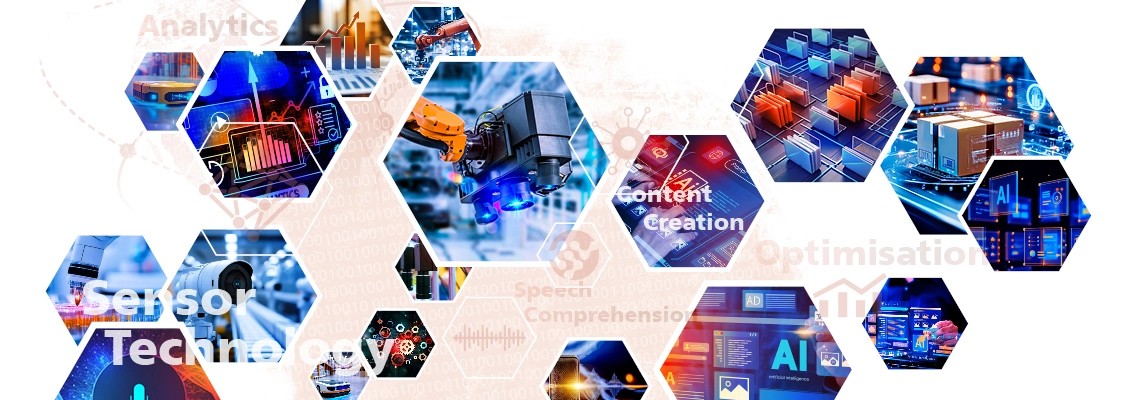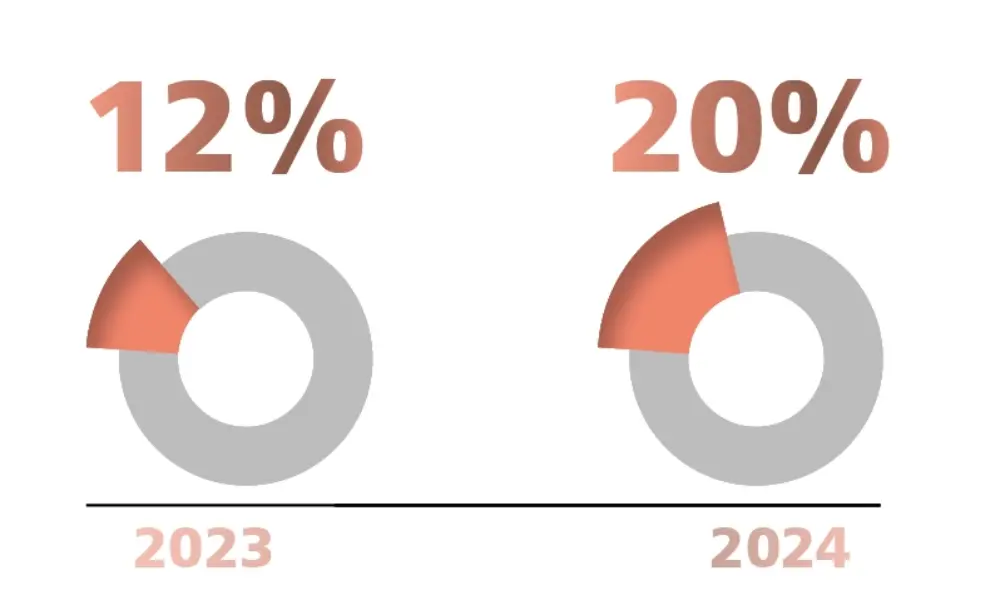How Businesses Can Benefit from Artificial Intelligence
Artificial intelligence (AI) has gone from science fiction to a commonplace mega-trend and has topped headlines for months thanks to its rapid development. Even for companies, the use of AI has resulted in many unexpected benefits in a number of applications across all business departments. In this special feature, we'll take a closer look at how AI can be profitable for companies, what groundwork must be laid to achieve this, and what lies ahead for AI.

You would be hard pressed to find another topic as widely discussed as artificial intelligence. Many scholars are calling it the most important technological advancement of the 21st century thus far. The release of the ChatGPT chat bot at the end of 2022 allowed the greater public to experience the impressive abilities of AI in action with their own eyes. Even at that time, most people were already familiar with different AI applications such as voice-enabled virtual assistants like Apple's Siri or advanced driver-assistance systems in modern cars. But the rapid development and new uses that have resulted from it, such as text and image generation, were and still are astonishing.
Unlike classic software that follows man-made rules and algorithms, AI learns by analyzing data. This makes it capable of independently recognising patterns and making decisions, without needing to be explicitly programmed to do so. With the right training, AI models are able to adapt to new and changing conditions and improve with time – given they're fed high-quality, correct data. This effect can be observed in image generation tools such as Midjourney which delivers even more accurate and sophisticated results with each new version.
More and more companies are using AI

Twenty percent of all companies in Germany have already been using AI technology since 2024, according to a survey by the German Federal Statistical Office. Interesting to note: With 48 percent, the share of large companies with more than 250 employees is significantly higher. Only 17 percent of smaller companies with fewer than 50 employees utilise artificial intelligence.
Many companies have also discovered AI's enormous potential. According to a survey conducted by the Federal Statistical Office, in 2024 in Germany alone, 20 percent of companies were using AI technology – which is up eight percent from the previous year. The reason is clear: AI is able to complete diverse tasks not only quicker, but more efficiently, precisely, and reliably. In some cases, it even makes completely new business models possible.
"In most companies, the use of AI is hard to avoid, regardless of the company's size," says Dr. Andreas Liebl, Managing Director of appliedAI Initiative GmbH. Founded in 2017, the initiative supports companies throughout Europe with implementing and using various AI technologies. "Artificial intelligence and its uses are developing so rapidly that companies are needing to adapt now to keep pace with it in the future." AI isn't merely the application of a new technology; it's a process that is causing companies to make fundamental changes.
Accordingly, there's a certain degree of general and application-independent maturity which must be defined, explains Leibel. "Companies must first learn how to use AI, as it functions completely differently to software. It requires specific organizational structures, responsible use must be defined, acceptance and competence among leadership and employees must be built up, and much more. The good thing is that everything can be approached very systematically, and this maturity can be improved in a very structured manner."
Many possible applications
For companies, the important questions are which applications should be converted to artificial intelligence and what do they want to achieve with it? "We identify five different fundamental capabilities of AI: sensing, analysing, language comprehension, content generation, and optimization procedures", adds Andreas Liebl. Sensory AI is based on information from cameras, microphones, or sensors. It is used, for example, in quality assurance for production processes, or in autonomously driving vehicles. On the contrary, analytic AI is able to make sales and pricing predictions or predictively plan production and logistics processes, as well as maintenance intervals.
Currently, generative AI is causing quite the fuss. These are systems that independently generate content according to the user's input. "Here, we are already implementing RAG-based models for companies. RAG stands for Retrieval Augmented Generation," explains Liebl. "These are language models that analyse different information from internal data and databases that they have access to. This can help users to read handbooks, analyse contracts, or compile large amounts of customer data, for instance." Even chat bots, which independently answer customer questions on company websites, belong to this category.
Autonomously manage complex processes
The next step in development for artificial intelligence, according to Andreas Liebl, is what is called agent-based AI. "These systems, with the help of machine learning and language processing, will be able to completely automate even complex work steps," says the expert. In the future, this technology could autonomously manage entire supply chains, optimise processes in real time, and react to unexpected disruptions in a targeted manner. These types of models can even be used in development to independently write the code for new software. "This technology is still in the early stages of development," according to Liebl. "But it will soon have the potential to make the most diverse applications many times more efficient."
Increased productivity, fewer errors, lower costs, and more flexibility are all possibilities that AI promises to deliver for companies. Liebl knows that it is still, however, not guaranteed that companies will be able to immediately benefit from AI. "I like to compare it to a marathon. Just because I buy the best running shoes, that doesn't mean that I can immediately run the entire distance. I need to start small and systematically improve. It's exactly the same with AI. It's not enough to simply buy into an application. Instead, companies should view AI as a competency that needs to be developed, including the necessary culture, data infrastructure, and governance. Only then is a company ready to implement this technology in a meaningful way."
ABOUT APPLIEDAI
AppliedAI Initiative GmbH, located in Munich, is Europe's largest initiative for the application of trustworthy AI technology in companies. Since their founding in 2017, they have educated more than 40,000 people on the subject and supported hundreds of companies in successfully employing artificial intelligence.
Learn more at appliedai.de/en

